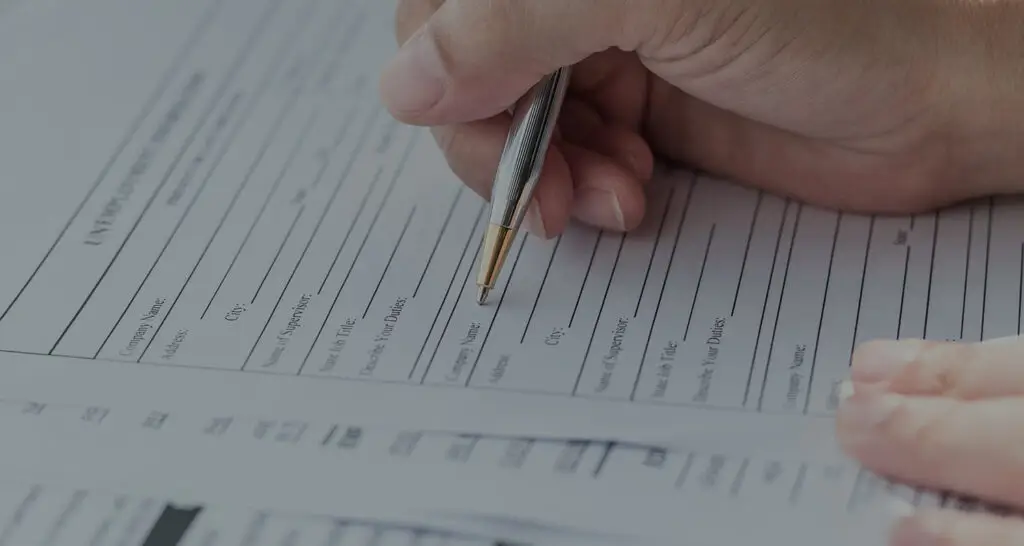Top 10 Florida Unemployment Questions Answered

Here are answers to 10 common Florida unemployment questions that will help you better understand what you need to know about Florida unemployment benefits.
Top Florida Unemployment Benefits Questions
1. Who Is Eligible for Florida Unemployment Benefits?
To qualify for unemployment benefits in Florida, you must be out of work through no fault of your own. In addition, you have to have earned $3,400 during a 12-month base period—the first four of the five calendar quarters prior to filing your Florida unemployment benefits claim. You also must:
-
-
- Be a U.S. citizen or have a permit to work in the United States.
- Have worked for an employer covered by the state’s unemployment insurance law.
- Be able and available for work.
- Register online with the Employ Florida marketplace.
-
Bonus Tip: Keep a record of your employment history and earnings, as it will be helpful during the application process for unemployment benefits.
2. If You Quit Your Job Are You Eligible for Unemployment Benefits?
If you quit your last job voluntarily, you are not eligible for Florida unemployment benefits. However, you could be eligible if:
-
-
- It was necessary for you to quit due to illness or disability.
- You quit due to unsolvable problems at work, such as discrimination, harassment, or unsafe working conditions.
- You quit because your spouse is in the military and was ordered to permanently relocate.
-
Bonus Fact: In Florida, if you had to quit your job due to your spouse’s military relocation, you may be eligible for unemployment benefits.
3. If You Were Fired Are You Eligible for Unemployment Benefits?
If you were fired due to misconduct, you are not eligible for unemployment benefits. In Florida, misconduct can be defined as:
-
-
- Conduct that disregards your employer’s interests and violates reasonable standards of behavior, including theft or property damage.
- Carelessness or negligence on such a scale that shows culpability or intentional disregard of your employer’s interests and your obligations.
- Repeated absenteeism or lateness that violates your employer’s policy or one or more unapproved absences after a written warning related to that absence.
- Subjecting your employer to sanctions or loss of licensure through violating a standard or regulation.
- Violating your employer’s rules that are known and consistently and fairly enforced.
-
Bonus Tip: Always ask for the reason for your dismissal in writing. It can be beneficial to understand if and how you may qualify for unemployment benefits.
4. How Do I Apply for Florida Unemployment Benefits?
Visit the Florida Department of Economic Opportunity’s website for details about applying for unemployment benefits and the following:
-
-
- Information you will need to provide to apply for unemployment benefits.
- How to apply online.
- How to calculate what you could receive in unemployment benefits.
- How to continue to receive unemployment benefits.
-
Bonus Fact: The Florida Department of Economic Opportunity provides tools and resources for job search as part of its services to unemployment benefit applicants.
5. How Much Will I Collect in Unemployment Benefits?
Your weekly benefit amount is based on the aforementioned base-period salary; it’s 1/26th of your earnings during the highest paid quarter of that period. The least you can earn per week is $32 and the most is $275.
Bonus Tip: Familiarize yourself with the laws regarding wage garnishment in Florida. If you have outstanding debts, it could impact the net amount you receive.
6. Can I Earn Money While Collecting Unemployment Benefits?
You won’t be eligible for unemployment benefits once you get a new job if it pays more than you are receiving in weekly compensation. However, if you simply pick up small jobs along the way and earn less than the weekly benefit amount, you should be able to receive unemployment benefits. That said, if you earn more than $58 a week, the state will deduct a small portion, which acts as a further incentive for you to find a job. In addition, you have to report your gross income and your earnings each time you request a benefit payment. And the payment has to be reported the week you earned it, not the week you received your paycheck.
Bonus Fact: Under Florida law, you are required to report all earnings while on unemployment. Not doing so can lead to penalties or even criminal charges.
7. How Long Will My Unemployment Benefits Last?
Florida’s unemployment rate at the time you apply for unemployment benefits determines how long you can receive compensation. The maximum number of weeks you can collect is 23, but during times of high unemployment (for example, during the Great Recession, which started in 2008), you may be able to apply for extended benefits (EB) and/or emergency unemployment compensation (EUC). However, neither program is available at this time due to lower unemployment rates.
Bonus Tip: Pay close attention to changes in the law during periods of economic hardship. Extensions to benefit duration, such as those during the COVID-19 pandemic, often occur in response to increased unemployment rates.
8. What Do I Have to Do to Keep Receiving Unemployment Benefits?
Once the Florida Department of Economic Opportunity approves your application, you have to do a number of things to remain eligible for unemployment benefits:
-
-
- Remain unemployed or underemployed, which typically means earning less than what you would receive in unemployment benefits (see above).
- Be able and available to work.
- Actively look for work.
- File to continue to receive unemployment benefits.
-
For more information on each of these eligibility requirements, access the Florida DEO’s CONNECT Claimant Guide.
Bonus Fact: Florida law requires you to maintain an active job search and report your efforts while receiving unemployment benefits. Non-compliance could lead to termination of your benefits.
9. Can I Appeal a Denial of Florida Unemployment Benefits?
If you are denied Florida unemployment benefits by the DEO (or they allocate a lower amount than you feel you are entitled to), you can appeal. But it’s important to note that you only have 20 days to do so. The Florida DEO’s website and Claimant Guide have more information on:
-
-
- Instructions, forms, and the deadline for filing an appeal.
- How and where to file an appeal.
- The length of the appeal process.
- What you should do if you file after the appeal deadline.
- What happens to your benefits while waiting for the DEO’s decision.
-
Bonus Tip: Consider seeking advice from a law firm such as Wenzel Fenton Cabassa P.A. when preparing an appeal. Understanding legal jargon and procedures can make a significant difference in your case’s outcome.
10. Do I Need an Attorney to Receive Unemployment Benefits?
You should consider consulting with an experienced unemployment compensation attorney if you feel as though you’ve been unfairly denied Florida unemployment benefits. An attorney can:
-
-
- Determine whether you are eligible for unemployment benefits.
- Determine whether your employer’s reason for letting you go was lawful and whether it stopped you from receiving unemployment benefits.
- Help you with your appeal to the Florida DEO if you’ve been denied unemployment benefits.
- Counsel you on how you can continue to receive unemployment benefits.
-
Bonus Fact: If your former employer is likely to have a lawyer, it may be especially beneficial for you to consider hiring an attorney to guide you through the process and represent your interests.
Bonus Fact: If your former employer is likely to have a lawyer, it may be especially beneficial for you to consider hiring an attorney to guide you through the process and represent your interests.
Before hiring an attorney, you may want to visit the Florida DEO’s right to appeal page, which will give you a sense of the appeal process, deadlines, and instructions about your potential hearing. If you go forward with the appeal process, it’s a good idea to consider hiring an attorney because your former employer is likely to have one. Your attorney can advise you on the evidence that will help your case, question witnesses, and argue on your behalf as to why you should be awarded unemployment benefits.
We at Wenzel Fenton Cabassa, P.A. can help answer all of your Florida unemployment questions and determine if you’ve been unfairly denied compensation. Give us a call today to schedule your free consultation.
Other articles about Florida unemployment benefits
5 Reasons You May Be Denied Unemployment Benefits in Florida
Wrongful Termination and Unemployment Benefits: What You Need to Know
What Is The Florida Reemployment Assistance Program
Why You Should Consider Hiring a Florida Unemployment Compensation Lawyer
A Self-Help Guide to File for Unemployment in Florida
Please Note: At the time this article was written, the information contained within it was current based on the prevailing law at the time. Laws and precedents are subject to change, so this information may not be up to date. Always speak with a law firm regarding any legal situation to get the most current information available.
Related Posts

FREE HELP GUIDES
Dealing with unpaid wages, discrimination or wrongful termination? Get the information you need to protect your workplace rights. We offer employment law resources to help you fight for workplace justice.




